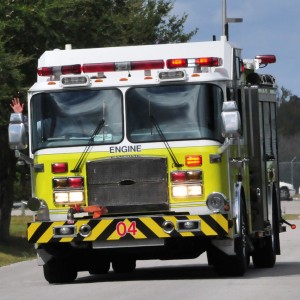 PROVIDENCE, R.I. — The Supreme Court of Rhode Island has unanimously ruled that the religious rights of two firefighters were not violated when they were forced to participate in a “gay pride parade” a decade ago despite their objections.
PROVIDENCE, R.I. — The Supreme Court of Rhode Island has unanimously ruled that the religious rights of two firefighters were not violated when they were forced to participate in a “gay pride parade” a decade ago despite their objections.
Theodore Fabrizio and Stephen Deninno were assigned by city officials to drive a fire truck in the 2001 parade, but when the men asked if they could be reassigned as they do not agree with the homosexual lifestyle, they were refused. The men then carried out their assignment against their will, but state that they experienced sexual harassment, including sexual propositions and “at least 60 profanity-laced anonymous phone calls,” from parade attendees and their co-workers both during and after the event.
They filed suit against then-Mayor Buddy Cianci and Fire Chief James Rattigan in 2004 after their complaints to the city remained unresolved. During the legal battle, Mayor Cianci asserted that the assignment was just like any other as the city regularly sends fire trucks to a variety of parades.
“Our policy was to send a fire truck to any parade that made the request, if one was available and the truck’s participation did not compromise public safety,” he contended. “Why should the gay-pride parade be any different than the St. Patrick’s Day Parade, the Purim Parade, or any parade in Providence? It shouldn’t, and it wasn’t.”
But Fabrizio and Deninno asserted that their constitutional rights—namely their rights to freedom of religion and freedom of speech—had been violated by being forced to participate in an event that conflicted with their convictions.
The litigation dragged out over the past decade, and the battle eventually made it to the state supreme court, which was to rule on whether the two city officials had immunity from being sued.
But on Friday, the court threw out the firefighters’ lawsuit altogether, unanimously ruling that the city did not violate the men’s constitutional rights because the assignment was “legitimate.”
“The [firefighters’] appearance in the parade, solely as members of the Providence Fire Department, did not constitute a form of expression on their part,” wrote Justice William Robinson on behalf of the five-judge panel. “Rather, it was simply the accomplishing of a task assigned to an engine company of the Providence Fire Department, and the individuals chosen to carry out that assignment cannot be said to have engaged in personal speech by carrying out their work as public servants.”
He opined that it was not necessary to reach the question of immunity since there was no constitutional infringement in the first place.
“[S]ince there was no deprivation of a constitutional right, our analysis rightly can come to an abrupt halt since ‘the need for [invocation of the doctrine of qualified immunity] no longer exists,'” Robinson stated.
He said that there was no case law that supported “the proposition that, in such specific circumstances, employees’ rights are violated if they happen to possess religious objections to the beliefs of the group with which an otherwise legitimate work assignment requires brief interaction.”
It is not known whether the Febrizio and Deninno will further appeal the case at this point.
Become a Christian News Network Supporter...


